#Nuts & Bolts
Text

this banjo-kazooie nuts & bolts lunchable ain't SHIT!!!!!
*10 minutes later*
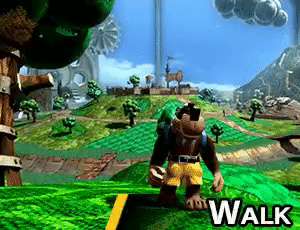

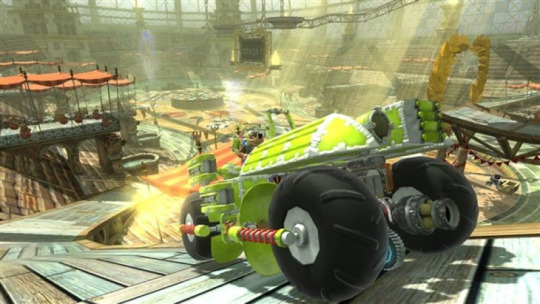
2K notes
·
View notes
Text
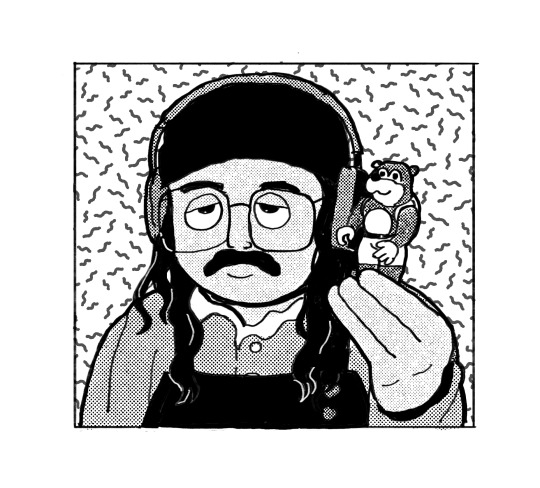
scorpy and friend
420 notes
·
View notes
Text
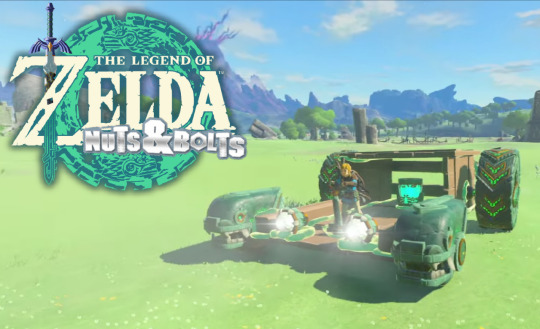
#zelda#tears of the kingdom#totk#switch#nintendo switch#banjo kazooie#nuts and bolts#xbox#funny#lol#humor#meme#link#breath of the wild#botw#gaming#video games#hyrule#loz
329 notes
·
View notes
Note
what is the name of the awtdy au? it looks to be an acronym of some sort
(any more stuff about the au in general is welcomed)
correct! here's the two page comic i made to answer this question instead of just typing out five words like a normal person because i am nothing if not committed!
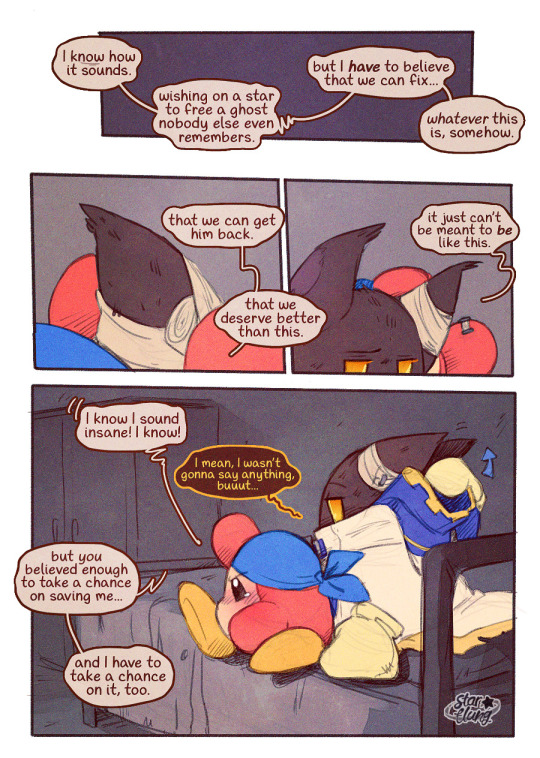
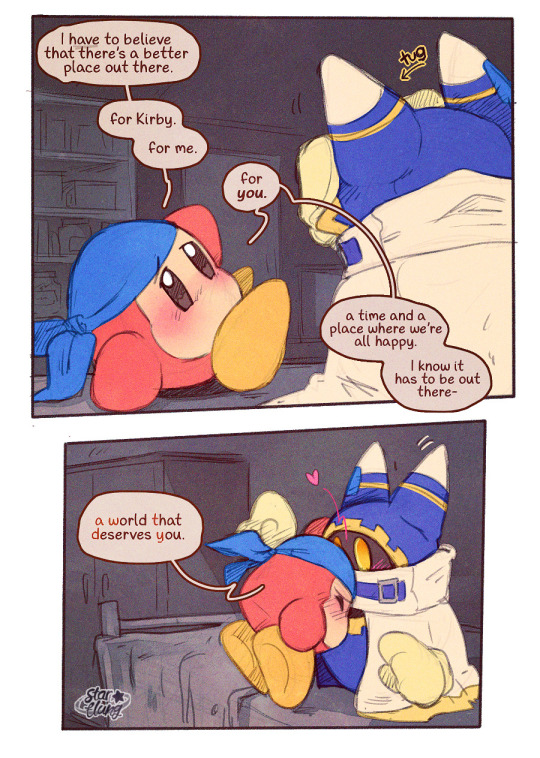
#hopefully this fills the 'any more stuff' prompt though!#another potential title was “the infinity integer” which tbh i think still goes SO hard#anyway this is pretty much the nuts and bolts of the core AU#magolor teaches bandee how to build ancient artifacts and solve time anomalies#bandee teaches magolor how to feel a fucking feeling#awtdy au#my art#my comics#bandana waddle dee#magolor#cw injury#also i think this goes without saying but just due to a message i received last time i posted about them:#i have always headcanoned that they're both adults of the same age.#this scene is actually completely platonic but i'm going to tag this anyway just in case for folks who specifically want to avoid it ->#bandee x magolor#🍎
187 notes
·
View notes
Text

Bear & Bird
~~~~~~~~~~~~~~~~~~~~~~
Happy new year! It’s 2024!
#banjo kazooie#rareware#rare ltd#nintendo#N64#xbox 360#super smash bros#smash ultimate#banjo kazooie nuts and bolts#art#drawing#my art#cute#happy new year#happy new year 2024#venturetime#vani royal#GUH-HUH!#diddy kong racing
111 notes
·
View notes
Text
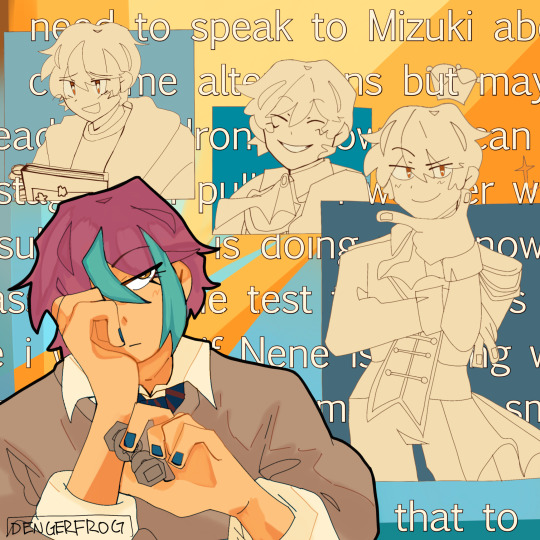
Runaway Thought Process
#rui kamishiro#tsukasa tenma#project sekai#colorful stage#proseka#wonderlands x showtime#wxs#mikutimeart#tenma tsukasa#kamishiro rui#implied ruikasa i suppose#i like this funny man who daydreams about shows during class bc he already knows the subject mattwe#he’s just here for the attendance mark and thats that#he’s fidgeting with a washer nut and bolt he put together btw#i accidentally got a little too carried away with this so its a little messy#but i figured id post it regardless#yknow?#whats the harm
2K notes
·
View notes
Text
Nuts and Bolts: Some Writing Advice
(Reposting a 2013 post from the Anna Katherine co-tumblr)
A friend of mine awhile back asked the aether for some practical, straightforward writing advice, which I assumed meant nuts and bolts stuff.
This is what I ended up writing to her.
(Caveat emptor: 1. The reason advice looks contradictory is because it literally is different for everyone — shit that works for one person won’t work for someone else. Just stick it in your toolbox and move along. 2. I will say obvious shit that you already know. Because it’s possible somebody else doesn’t. 3. You may totally disagree with anything/everything I say, oh my god, that’s fine.)
1. Use the word “said.” Throw in a “she declaimed” every once in a while if you like, but don’t do it all the time. Feel free to put in no dialogue tags at all, if it’s clear who’s speaking. But “said” is free and generally invisible to the reader (and the goal is to not remind the reader that they’re reading).
2. Writing advice for short fiction and writing advice for novels are and writing advice for one genre versus another are all going to tell you slightly (or wildly) different things. So, you know, watch out for that. I suggest switching mediums entirely, and try reading up on screenplays or three-panel comics.
3. Stick your finished draft into a Kindle or some other robot reader, and have a mechanical voice read the story to you. It’s a step removed, and you’ll hear where it clunks. Make notes as it goes.
4. If you don’t have a robot reader, read it out loud to yourself. Actually out loud. Put check marks wherever you cringe. It’s where the reader will likely cringe too.
5. Start your story at the point of change. It’s more interesting. Backfill with exposition a couple of paragraphs later.
6. Sometimes, if I’m writing a one-off, I pick a motif and stick with it as a lodestone for all my descriptions. It’s a way of creating a sort of subliminal mood and atmosphere for the reader, while at the same time maintaining a nice sense of continuity.
7. The English language likes to hear things in threes. Three bears, three nights, three wishes, and what with one thing and another, three years passed. English also likes iambic pentameter and any other rhyme or rhythm scheme it can get its hands on. Readers want language to both have a pretty meaning (three brothers seek their fortune) and a pretty sound (now is the winter of our discontent). The fastest way to do this, and not have it be totally obvious, is to combine the two. Have three lines of description, three examples of something, three jokes — and do it semi-regularly. It creates a rhythm in your work, like a heartbeat. Study other people’s stories and see if you can find where they’re doing the same or similar things. Count stuff.
8. Then, later, fuck with your readers by breaking the rhythm. Stop the heartbeat. Miss the step. The reader will get nervous and uncomfortable and have no idea why. Makes for good tension.
9. Other things that make readers uncomfortable: Set dressing. We’re used to visual mediums. If you want to set up a really uncomfortable scene, describe key things around it going in, and make it clear that it’s Not Okay. A pair of scissors that have been left half open. A door that is not entirely shut. A radio caught between two stations, the garden hose still left running. Nothing overt, nothing obvious – just stuff that feels uncomfortable to read. Do enough of those in a row, as you head toward a confrontation, and the reader will be a ball of avidly reading tension by the end of it.
10. Graphic sex scenes are equal to action scenes. In both instances, know where everybody is, and what everybody’s doing. Describe with more physical action than you think is necessary. If the reader doesn’t know where everybody’s limbs are and what tools are being used, then they’ll get confused and bored. You can always edit later.
113 notes
·
View notes
Note
objectum culture is asking your friends to hear you out and then sending a picture of a really cute gun you saw
.
#objectum#actually objectum#objectum culture#objectum culture is#me but with nuts and bolts on the ground
37 notes
·
View notes
Text
You just know he’s got the biggest smile behind that visor!! 😍

#simply put I’m putty in his nut and bolt hands#that new chassis feeling#f1#daniel ricciardo#formula 1#dr3#formula one#danny ric
32 notes
·
View notes
Text
WHY IS MY BACON SPICY.
#cmon man. cmon cut me a break#i just spend a solid half hour sawing through a bolt i want. Good. Bacon.#it just tastes like smoke and it burns.#why would he cook bacon in a smokerrrrrr thats all it tastes like now!!!!#i feel like im eating a campfire#also @ whoever made the plans for the house bathrooms. id like a word. yes the knife is related to that word#'we'll put the toilet three inches from the shower'#'so that the nuts & bolts rust to hell and back'#'and the angle is totally Fucked for whoever wants to get a better toilet!'#THANKS. MY WRISTS AND HANDS HURT.#absolutely unprompted#at least the bacon is juicy. cant taste the bacon but its juicy...#and my stepdad was kind enough not to crisp it all up#dont like crispy bacon...
42 notes
·
View notes
Text
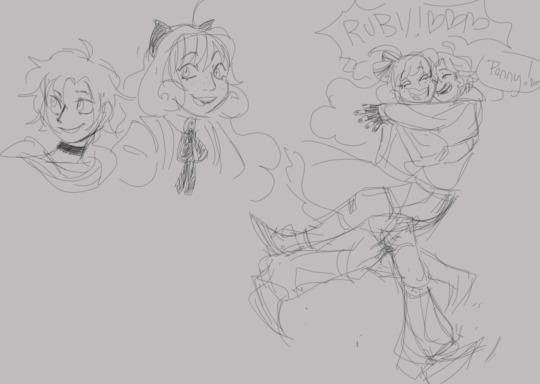
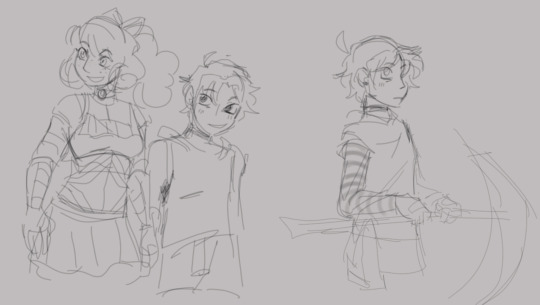
Rwby doodles… specifically nuts and bolts…
155 notes
·
View notes
Text
God damn, item fusion in Tears of the Kingdom is such a brilliant response to critics of Breath of the Wild's weapon degradation. It keeps the play loop of the original game intact, constantly giving you reasons to go find new places and things to experiment with, but gives you an expanded toolkit to address the same kinds of encounters.
The thing that weapon deg haters couldn't always articulate about why the system rubbed them the wrong way is still there, I think; this is a game about lateral thinking and exploration, and those modes of play won't necessarily satisfy longtime fans. This game now has more in common with the criminally overlooked Banjo-Kazooie: Nuts and Bolts than it does with the rest of Zelda canon. To me, that's neat. BK:NB broke ground so ahead of it's time that it's taken a decade and a half for other major studios to try it's premise again, and I'm hopeful that other developers can take something from these new tools Nintendo is trying out.
Because it's a phenomenally whacky idea. Like, whoever proposed that had to have the backing of _tons_ of dedicated people to make it possible, because the original game already had dozens of interactive objects. Someone saying "it would be neat if everything could be glued together" is a pipe dream at most studios, and they fuckin did it!
I hope we haven't seen the last of more traditional Zelda style games, but gosh, this new frontier sure is neat.
390 notes
·
View notes
Text
Hermione tapped her finger on the map, "Alright, Ron, you be the lookout. Harry, you be the distraction. I will get in."
The boy-who-lived had been nodding most seriously before her words stopping no sense, "Wait, what? Why am I the distraction?! Hermione, I should be the one dealing with the ward and the trap and what not. In fact that is what we have been doing so far! Why change it?"
"That's before we realized none of our efforts matter! Because every time we get anywhere near their base, you-know-who sees us and then it doesn't matter who is doing what! He is always looking for you!"
Harry spluttered, "But- what if I don't want to fight him anymore?" He whined. He already has to see that snake face enough time anyway.
Ron shrugged, "Then just bat your eyes at hin or something. Should work just as well."
#was on my way to therapy when i started cackling in the middle of the road#pretty sure people thought me nuts and bolts#ehhh#harrymort#tomarry#harry potter#tom riddle#tom/harry#lvhp#mishqut drabble
135 notes
·
View notes
Note
I have to tell you how much of a sexy cool mysterious personality you give off that makes everyone naturally like you. It's very easy to respect your intelligence and compliment your interest in art. Your music choice is cool like a DJ and your movie choice is impenetrable like a critic. I have never known anyone like you. You’re very easily memorable in the way you express things because it rang true like ‘art should comfort the disturbed and disturb the comfortable’ Is this why you like Martin Scorsese movies? Can you tell me your thoughts on why you like Goodfellas? It’s very popular for many people, but I have to confess I did not like this film >_<
because this —
#the perfect cast w a director hitting his peak along with one of the most entertaining and shocking looks into the nuts & bolts of the mafia#AND an insane soundtrack??? what’s not to love#ask
30 notes
·
View notes
Text
Nuts and Bolts: Thoughts on Plotting
(Reposting a 2013 post from the Anna Katherine co-tumblr)
Here, have some really straightforward, practical thoughts about plots and plotting. Of which I have way too many, btw.
(Previous nuts and bolts caveats apply, naturally. Assume I have so many thoughts about this stuff because I’ve fucked it up pretty often.)
::::
1. A short story is a single idea, examined or played out. (Movies are also short stories. This is why turning books into movies leads to tears.) Figure out what your “idea” is – or the goal of your story, or the point you’re trying to make, whichever terminology floats your boat – and aim toward that without wavering.
2. Your plot and your characters go hand in hand. They inform each other – if you have one, you have the other. It’s one of the ways that storytelling is the least like real life. The entire plot might as well be a metaphor for whatever issues are going on in the characters lives – but once you realize that, you can use that fact to reverse-engineer your characters or your plot if you’re stuck without one or the other.
3. Frequently problems with plots are just problems with structure. Go find your favorite book (or rather, your favorite book that is most like the kind of book that you’re trying to write) and break it down, section by section, until you’ve got something really basic like “meet-cute” and “things go bad” and shit like that. Then see if you can’t just drape your plot right on over that structure like a brand new Sunday suit.
4. It’s okay to borrow structures. It’s okay to borrow stories, for that matter. Plots can come from a lot of places. “Write what you know” clearly meant “steal every anecdote in England” to Chaucer, and he became the father of English literature, so.
5. Middle sections of books are terrible. They just are. Everyone wants to give up. This is the number one reason to have an outline or at least a game plan, oh my god. You want to see some hope of a way out, because the middle of a book lasts twice as long as the end of infinity.
6. To that end, once I’ve got some characters and a vague idea of what I want to do with them, I like to put together a list of “adventures”. It’s just stuff I’d like them to do during the course of the story. Sex scenes, car chases, dress fittings, amusing adventures with food, anything like that. Just stuff that I think would be fun to write, and that I know I will need to fill the endless fucking wasteland of the middle of the book.
7. (Those adventures? Should reflect the issues of the characters. Because characters and plots are the same thing. See point 2.)
8. For short stories, have an end point to aim toward, along with a general emotional zone to wallow in. I had a short story whose working title was literally “and then somehow, making out,” which was indeed the end point I was aiming at. The emotional zone I wanted to stay in was fairly light with some emotional dips into heavy stuff for contrast. But mostly what it said on the tin.
9. For books, writing the last scene right at the start of your process is sometimes nice, because it gives you a sort of mark to aim for. (You can always rewrite it later.)
10. Try to capture some really vivid mental pictures of strong scenes. Add those to your “adventure” list, or, better, just write them down. It doesn’t have to be perfect – if you want, just bro it out like you’re describing your favorite badass robot move from Pacific Rim to someone who’s never seen it. At that point there are barely any characters, there’s just the broad sweeps of movement across the page.
+1. Remember: You are the god-king of the book. If worse comes to worst, have a plague of shrews suddenly appear and make your characters deal with it. You can do anything! If you don’t know what to do, do anything. It’s better than doing nothing, and frankly, if it doesn’t work, at least you’ll have written something. You can always delete it tomorrow.
+2. No, seriously, I was writing a book and I could tell there needed to be some kind of big turn in the narrative (because of structure!), and I couldn’t think of what, so I literally wrote down a list of random shit I could make happen to the characters. Just because I could. That list included:
set house on fire
airplane explosion
hunting accident
heatstroke
I was willing to set a house on fire, possibly by having a plane explode on it, just to get my characters doing something for another twenty pages. And the best part was: All I had to do was write the consequences, and add some foreshadowing, and I’d get away scot-free. The perfect crime. GOD-KING, Y'ALL.
72 notes
·
View notes
Text

immersion be damned that twink can drive a truck
#zelda totk#totk#tears of the kingdom#nuts and bolts#shea muses aloud#im so glad others have made this comparison hahaha#granted it's less of the horror from the Nuts & Bolts total genre shift but you cant tell me this car doesnt look similar#minecraft lookin ass hahah#also obligatory disclaimer that im generally neutral about the new reveal#looks fun! big monsters my beloved!#wishing and hoping for more potential nuance in our story but also being realistic about it being nintendo yknow?#im sure itll be fun regardless and i can gripe with my friends over various annoyances but it wont be the end of the world#rambling in the tags#but tldr i try to balance between hype and criticism#lest i sink into fandom tar pits of woe#or become totally rosy eyed over everything#oh missed a tag in my ramble#totk spoilers
210 notes
·
View notes